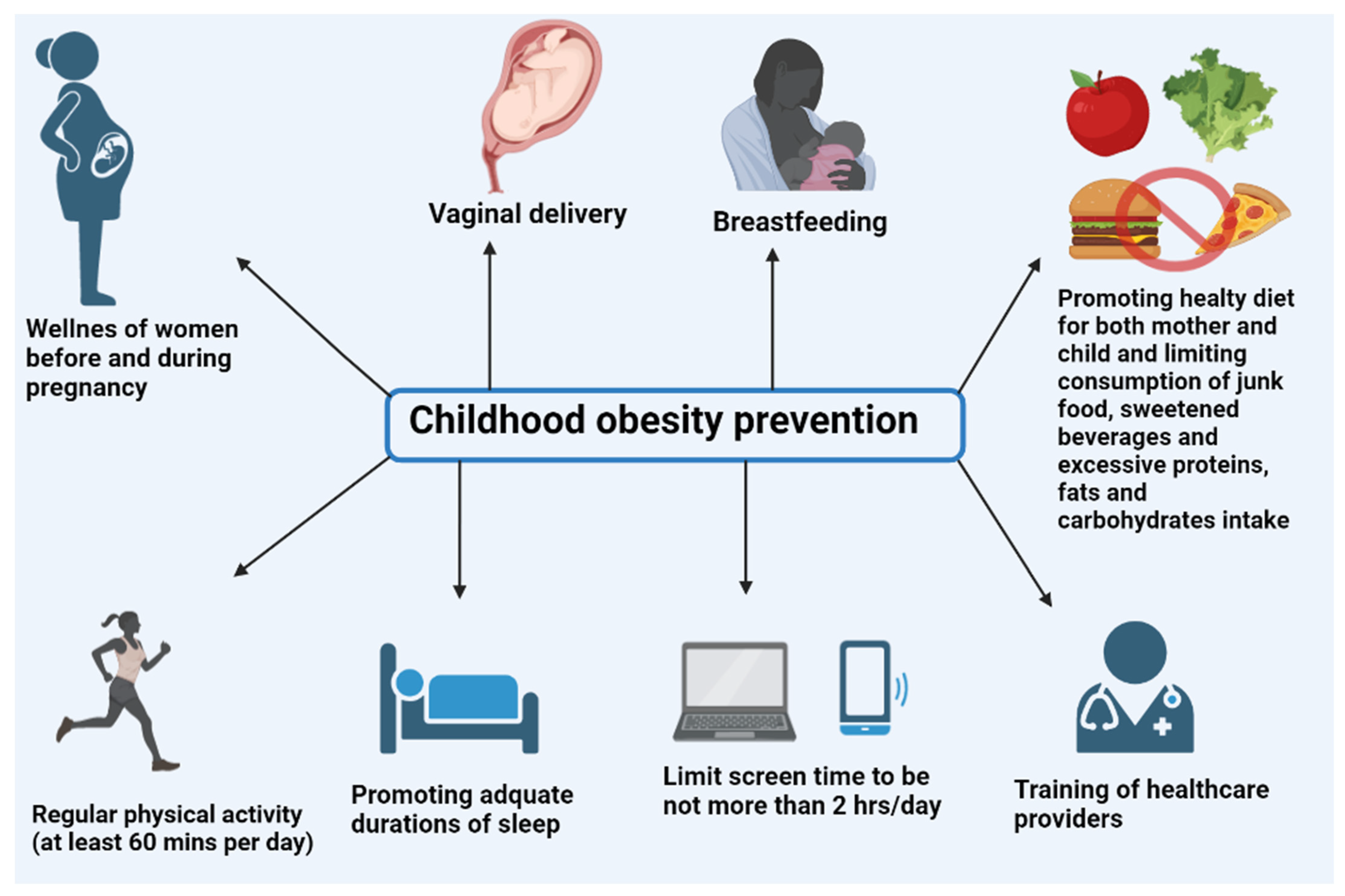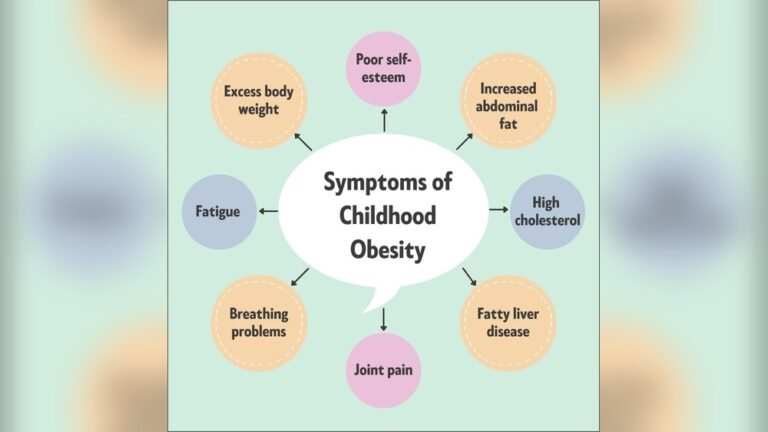Have you ever wondered how childhood obesity might affect your child’s life beyond just their weight? The truth is, the effects go far deeper than you might think.
Childhood obesity doesn’t just change how your child looks — it can impact their heart, lungs, joints, and even their emotional well-being. If you care about your child’s future health and happiness, understanding these effects is crucial. Keep reading to discover how childhood obesity can shape your child’s life in ways you may not expect — and what you can do to help protect them.
Credit: www.rockstaracademy.com
Health Risks Linked To Childhood Obesity
Childhood obesity brings many health risks that affect a child’s life now and in the future. Excess weight strains the body and raises the chance of serious illnesses. Early understanding of these risks can help protect children from long-term damage.
Heart Disease And Blood Pressure
Extra body fat makes the heart work harder. This can lead to high blood pressure, a key risk factor for heart disease. Obese children often have higher cholesterol levels. These conditions increase the chance of heart problems as they grow.
Cancer Risks In Obese Children
Obesity in children raises the risk of several cancers. These include breast, colon, and pancreatic cancers. Fat tissue can create inflammation, which may trigger cancer development. Early weight control helps reduce these risks.
Sleep Apnea And Breathing Issues
Fat around the neck can block airways during sleep. This causes sleep apnea, making breathing stop and start repeatedly. Poor sleep affects growth, mood, and learning. Weight loss often improves breathing and sleep quality.
Asthma Severity And Obesity
Obese children often have worse asthma symptoms. Extra weight can make breathing difficult and increase inflammation in the lungs. This leads to more frequent attacks and harder-to-control asthma.
Joint Stress And Osteoarthritis
Carrying extra weight puts stress on joints like knees and hips. This can cause pain and early wear of joint cartilage. Obese children face a higher chance of developing osteoarthritis later in life.
Stroke Risk Factors
Obesity raises blood pressure and cholesterol. These factors can block blood flow to the brain. Children with obesity have a higher risk of stroke as they age. Preventing obesity lowers this serious risk.
Gallstones And Liver Problems
Obesity increases the chance of gallstones, which cause pain and digestion issues. Fat buildup can also damage the liver, leading to fatty liver disease. Early weight management helps protect liver health.
Gastroesophageal Reflux Disease
Obese children may develop gastroesophageal reflux disease (GERD). This causes stomach acid to flow back into the esophagus. GERD leads to heartburn, discomfort, and possible damage to the esophagus lining.
Emotional And Psychological Effects
Childhood obesity affects more than just the body. It also impacts a child’s emotions and mind. These emotional and psychological effects can shape a child’s overall well-being. Understanding these impacts helps in providing better support and care.
Depression And Anxiety
Obese children often face feelings of sadness and worry. They may feel left out or different from others. These feelings can lead to depression and anxiety. Such mental health issues can affect their daily life and school performance.
Stress from bullying or teasing may increase these emotional struggles. It is important to recognize and address these signs early.
Impact On Self-esteem
Children with obesity might have low self-esteem. They may dislike their appearance or feel less confident. Low self-esteem can affect how they try new activities or make friends. This can hold them back from enjoying childhood fully.
Positive encouragement and support can help improve their self-worth.
Social Challenges And Isolation
Obese children can face social difficulties. They might be excluded from games or group activities. This exclusion can lead to feelings of loneliness and isolation. Social isolation can worsen emotional health and increase sadness.
Building inclusive environments helps children feel accepted and valued.
Benefits Of Physical Activity
Physical activity boosts both body and mind. Exercise releases chemicals that improve mood and reduce stress. Active children often sleep better and feel more energetic. Regular activity can help reduce symptoms of depression and anxiety.
Encouraging fun and safe physical activities supports emotional health and builds friendships.
Causes Behind Childhood Obesity
Childhood obesity happens due to many different reasons. These causes often work together to increase a child’s risk. Understanding these causes helps in preventing and managing obesity early. Here are some key factors behind childhood obesity.
Genetic Influences
Genes can affect how a child stores fat and burns energy. Some children inherit a tendency to gain weight easily. Genetics also influence appetite and metabolism. This means some children may feel hungrier or use calories less efficiently. But genes alone do not cause obesity.
Diet And Eating Patterns
Eating habits play a big role in childhood obesity. Children who eat high-calorie, sugary, and fast foods gain weight faster. Large portion sizes add extra calories. Skipping meals or eating irregularly can also disrupt metabolism. Healthy eating with fruits, vegetables, and balanced meals helps keep weight normal.
Physical Inactivity
Lack of exercise is a major cause of obesity. Many children spend too much time sitting, watching TV, or playing video games. Physical activity burns calories and builds muscle. Without enough movement, excess calories turn into fat. Encouraging regular play and sports supports a healthy weight.
Family And Environmental Factors
Family habits greatly influence a child’s weight. Parents who eat unhealthy foods or do not exercise may pass these habits to children. Limited access to safe parks or healthy food stores also affects obesity risk. Stress and sleep problems in the home can contribute too. A supportive environment helps children stay healthy.
Preventive Measures And Solutions
Preventing childhood obesity requires a clear plan and active steps. Early actions help children grow healthy and avoid future health issues. Families, schools, and communities all play a key role in prevention.
Simple changes in daily routines can make a big difference. The goal is to build strong habits that last a lifetime. Focus on balanced eating, staying active, and emotional support for kids.
Healthy Eating Habits
Encourage children to eat fruits, vegetables, and whole grains. Limit sugary drinks, fast food, and snacks high in fat. Teach portion control and the importance of regular meals. Healthy eating helps maintain a balanced weight and boosts energy.
Encouraging Regular Exercise
Physical activity supports healthy growth and weight management. Kids should aim for at least one hour of exercise daily. Activities like walking, biking, or playing sports keep them active. Exercise also improves mood and strengthens muscles and bones.
Family Involvement And Support
Families create the environment for healthy habits. Parents can set an example by choosing nutritious foods and staying active. Eating meals together and planning activities as a family encourage positive changes. Support helps children feel confident and motivated.
School And Community Programs
Schools can provide nutritious meals and promote physical activity. Programs that teach healthy lifestyle skills help children make better choices. Community centers offer sports and wellness classes for kids. These programs create a strong support network for healthy living.
Medical Interventions When Necessary
Some children may need help from healthcare professionals. Doctors can assess health risks and suggest plans for weight management. In rare cases, medication or therapy might be required. Medical support ensures safe and effective care for obese children.
Long-term Impact On Adult Health
The effects of childhood obesity often extend far beyond adolescence. Many children who struggle with obesity face serious health challenges as adults. These challenges can affect their quality of life and reduce life expectancy. Understanding these long-term impacts can help parents and caregivers act early to protect children’s futures.
Chronic Disease Development
Children with obesity have a higher risk of developing chronic diseases later. Heart disease is common due to high blood pressure and cholesterol. Type 2 diabetes can develop because of insulin resistance. Obesity also increases the chance of some cancers. Joint problems like osteoarthritis often occur from extra stress on bones. These diseases can cause pain and limit daily activities.
Mental Health Consequences
Obesity in childhood can also affect mental health in adulthood. Many adults who were obese as children suffer from low self-esteem. Depression and anxiety are more common in this group. Social stigma and bullying add to emotional distress. These mental health issues can reduce motivation to live a healthy life. Support and understanding are key for mental well-being.
Importance Of Early Intervention
Early intervention can change the future for children with obesity. Healthy eating habits and regular exercise can prevent many problems. Doctors and parents should work together to create a plan. Small changes in lifestyle can make a big difference over time. Early support improves both physical and mental health outcomes. Acting early helps children grow into healthier adults.

Credit: www.cureus.com

Credit: www.mdpi.com
Conclusion
Childhood obesity brings many health risks that can last a lifetime. It raises chances of heart disease, diabetes, and joint pain. Kids with obesity may also face breathing problems and sleep issues. These effects can hurt their daily lives and future well-being.
Early steps to promote healthy eating and active habits help prevent these problems. Families, schools, and communities play key roles in supporting children’s health. Taking action now creates a brighter, healthier future for every child. The impact of childhood obesity cannot be ignored or delayed.


